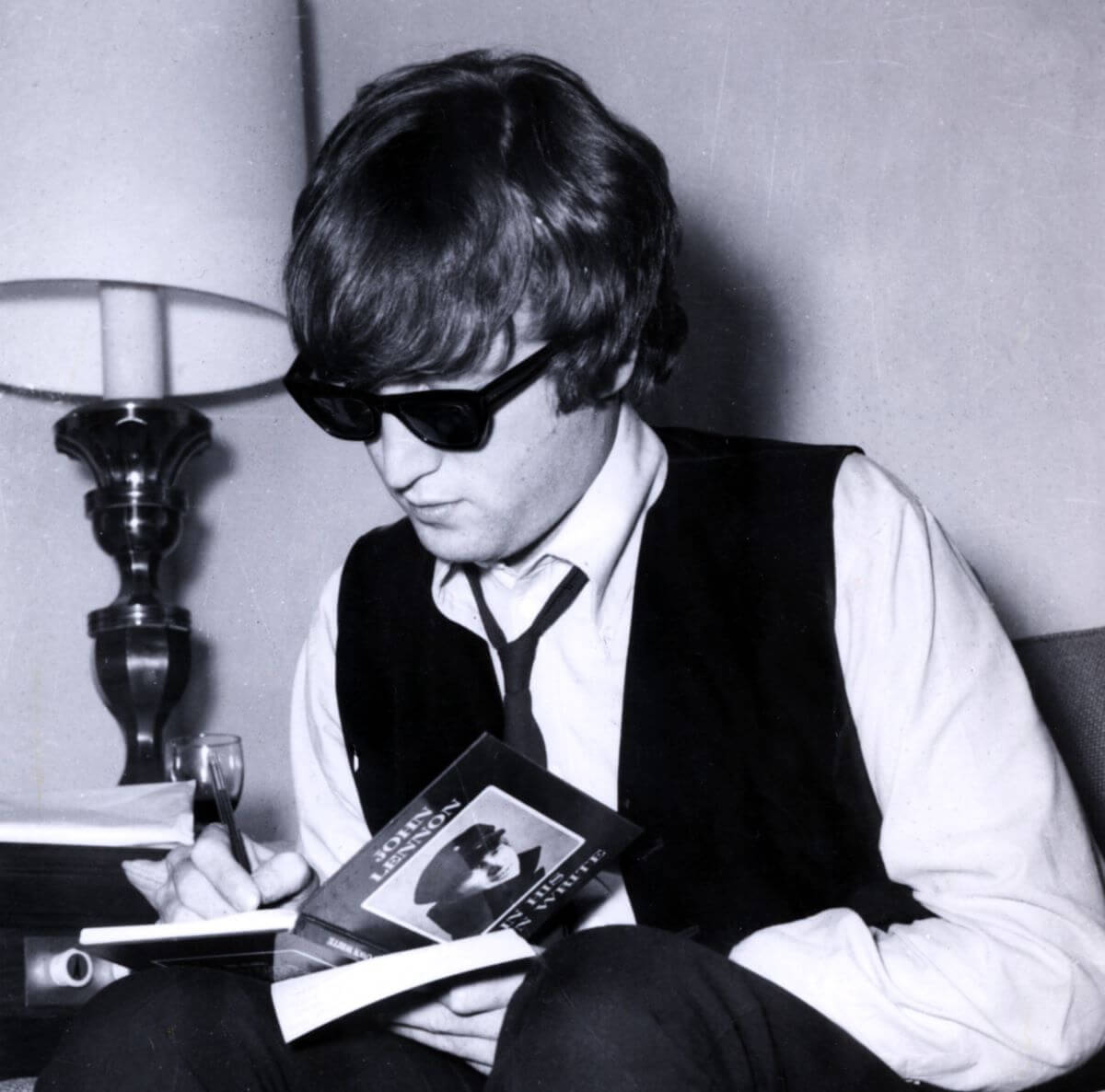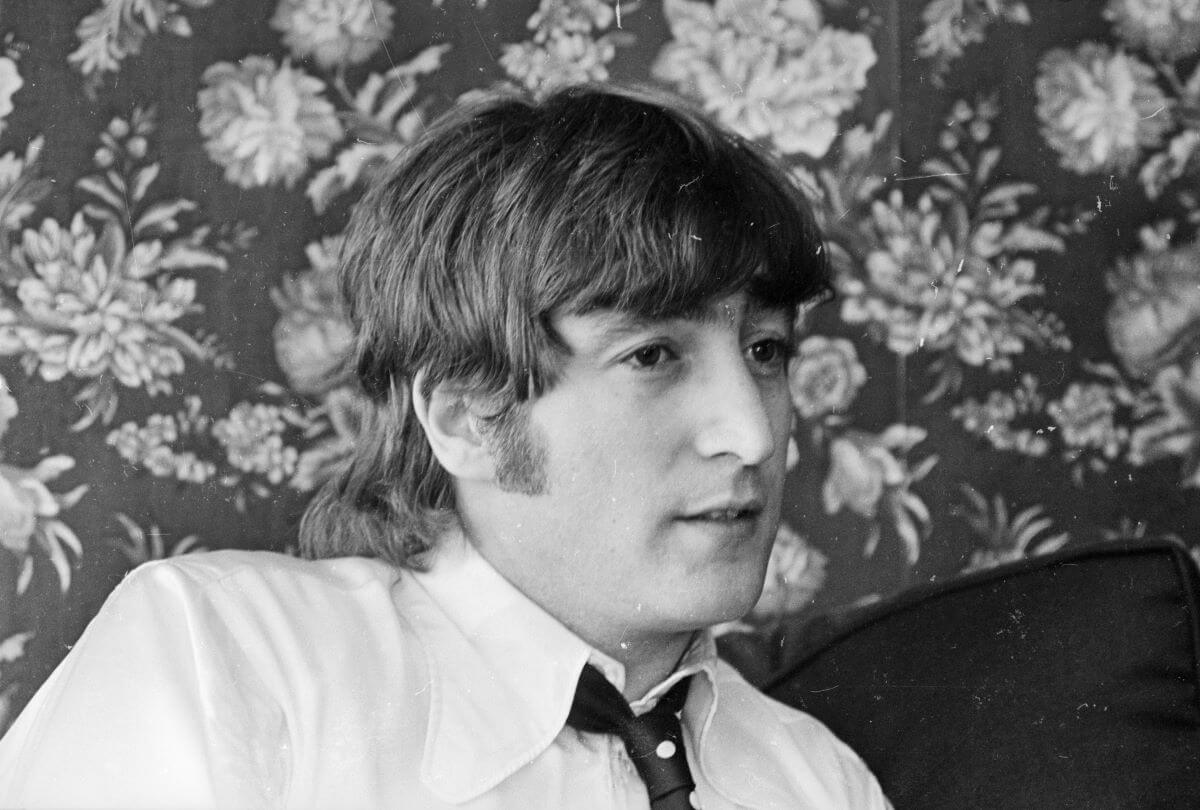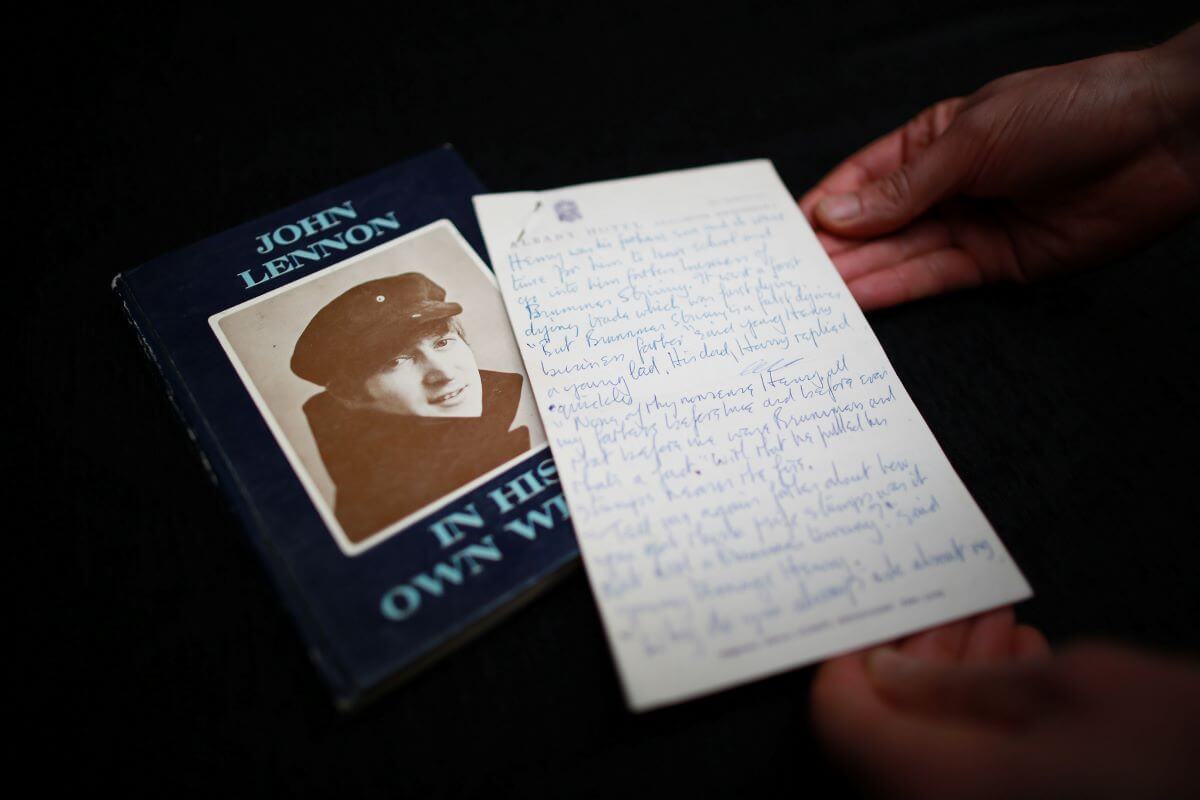
John Lennon Stopped Writing Books Because It Took Him to Dark Places
In The Beatles’ early days of success, John Lennon set himself apart from his bandmates by publishing two books. He published his first book, In His Own Write, in 1964. His second, A Spaniard in the Works, came out the following year. After these two, Lennon said he felt he needed to take a break from writing books. He did not like the headspace into which writing brought him.
John Lennon shared why he lost interest in writing books
When Lennon compiled In His Own Write, he was able to pull from years worth of writing and artwork. For A Spaniard in the Works, he had to sit down and work on new material.
“The second book was more disciplined because it was started from scratch,” Lennon said in The Beatles Anthology. “They said, ‘You’ve got so many months to write a book in.’ I wrote In His Own Write — at least some of it — while I was still at school, and it came spontaneously.”

Lennon did not like the process of writing A Spaniard in the Works. It was enough to turn him off writing books entirely.
“Once it became: ‘We want another book from you, Mr. Lennon,’ I could only loosen up to it with a bottle of Johnnie Walker, and I thought, ‘If it takes a bottle every night to get me to write…’ That’s why I didn’t write anymore,” he said. “I’m not very keen on being disciplined. (It seems odd, being a Beatle; we’re disciplined but we don’t feel as though we are. I don’t mind being disciplined and not realizing it.)”
Ultimately, Lennon would write one more book, Skywriting by Word of Mouth, which came out posthumously in 1986.
John Lennon was still proud to have published two books
A Spaniard in the Works was a challenge for Lennon, but he was glad to have done it. He’d worked hard on it, and it set him apart from his bandmates, to whom he often felt inextricably bound.
“A Spaniard in the Works gave me another personal boost,” he said. “OK, it didn’t do as well as the first, but then what follow-up book ever does? In any case, I had a lot of the stories in the book bottled up in my system and it did me good to get rid of them — ‘better out than in.’ The book is more complicated; there are some stories and bits in it that even I don’t understand, but once I’ve written something what’s the point of letting it hang around in a drawer when I know I can get it published? The plain unvarnished fact is that I like writing, and I’d go on writing even if there wasn’t any publisher daft enough to publish them.”
He said he loved to read
Lennon’s unwillingness to write further books did nothing to impact his love of reading. He said he might have taken unconscious inspiration from some of the work he’d read.
“I must have come across James Joyce at school, but we hadn’t done him like I remember doing Shakespeare,” he said. “The first thing they say is, ‘Oh, he’s read James Joyce,’ but I hadn’t. So I thought the thing to do would be to buy Finnegans Wake and read a chapter. And it was great, and I dug it and felt as though he was an old friend, but I couldn’t make it right through the book.”

Still, he didn’t always understand why reviewers compared his work to classics.
“I bought one book on Edward Lear, and a big book on Chaucer — so now I know what they [the reviewers] are talking about,” he said. “But I couldn’t see any resemblance [in my own work] to any of them. A little bit of Finnegans Wake. But Finnegans Wake was so way-out and so different — a few word changes, and anyone who changes words has got to be compared; but his stuff is something else.”


